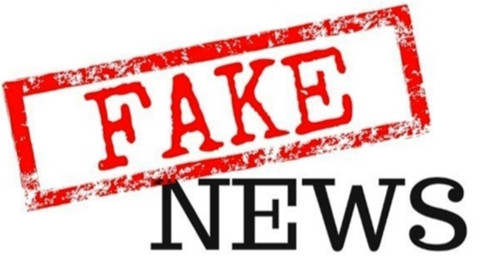Fake news and the real threat to national security
Fake information always spreads much faster and is distributed much more widely than real information.
The problem of fake news with the intention of distorting the truth is significantly affecting the political and social life of many countries in the world, even directly threatening national security.
|
| Fake news is appearing more and more, directly threatening security and social order. Illustration photo: KT |
During the failed coup by the opposition in Venezuela on April 30, President Nicolas Maduro denied US information that he planned to flee to Cuba but was persuaded by Russia to stay in Venezuela. According to Russian Foreign Ministry spokeswoman Maria Zakharova, this information is fake. Responding to CNN, Ms. Zakharova emphasized: "Washington has tried its best to overthrow the Venezuelan military and is now using fake news as part of the information war."
Also in April, after the bloody terrorist attacks that killed hundreds of people, Sri Lankan government officials announced that they would block major social media sites and messaging apps, including Facebook and Whatsapp. The decision was made nationwide to prevent the spread of false information and rumors that caused panic about the series of bombings.
Fake news on the Internet, which was often just humorous or fictional creations about 10 years ago, is now a strong candidate for the title of "most influential factor" in society.
With 64 million Internet users, accounting for 67% of the population, by the end of 2018, Vietnam was among the top 10 countries with the most social network users in the world. Smart devices have become popular and familiar, associated with the daily life, study and work of most people.
In addition to the great benefits, we are also facing many risks and challenges from cyberspace, even threatening national security and social order and safety. Among them, we must mention the negative impacts of bad and toxic information spread on the internet as well as the problem of fake news. At a recent conference in Hanoi, a representative of the Department of Cyber Security and High-Tech Crime Prevention - Ministry of Public Security stated that the problem of fake news is currently causing "pain", complexity, and directly affecting people.
|
| Vietnam is among the top 10 countries with the most social network users in the world. (Illustration: KT) |
In fact, a series of incidents of posting fake information in recent times have negatively affected public opinion, causing panic and indignation such as: information about "plane crash at Noi Bai airport in 2017", "A series of children hospitalized due to poisoning from pork containing sedatives", information about kindergartens using pork infected with pork tapeworm in Bac Ninh... Most recently (after Lunar New Year), in Da Nang city, a number of individuals have spread fake news, even forged documents of Da Nang city leaders to create a "land fever". These actions have significantly affected security and order, causing public insecurity.
Previously, on the social network Facebook, a fake account named "Central Propaganda Department of the Communist Party of Vietnam" appeared to mislead public opinion, causing information confusion, making it difficult for netizens to distinguish what is real and what is fake.
More dangerously, in June 2018, in order to fuel and fuel the riots in Binh Thuan to protest the Special Economic Zone and Cyber Security Bill, some people took full advantage of social networks to propagate and incite people with fake and edited information and images. According to Chairman of the Hanoi People's Committee Nguyen Duc Chung, on the morning of June 10, 2018, some people propagandized online that there were many protesters in the Hoan Kiem Lake area, but in reality, there was no such thing.
Faced with the “real” threat of “fake news”, Vietnam’s Cyber Security Law, as well as similar laws in many countries around the world, have imposed strict sanctions. The Cyber Security Law was passed by the National Assembly in June 2018 and took effect on January 1, 2019, which prohibits “false information that causes panic among the people, damages economic and social activities, causes difficulties for the operations of state agencies or public servants, and infringes upon the legitimate rights and interests of other agencies, organizations and individuals”.
In the Resolution of the regular meeting in March 2019, the Government directed the Ministry of Information and Communications to research and take measures to handle fake information online, and report to the Prime Minister before August 2019.
Many countries around the world also consider “fake news” a problem. Right in the Southeast Asian country of Singapore, the Government has just proposed a Bill, which stipulates that “those who disseminate false information containing content that intentionally harms the public interest will face imprisonment of up to 10 years”. Malaysia and Cambodia have also passed separate laws on “fake news”.
Under Cambodian law, anyone posting false information on social media or websites can be imprisoned for up to two years and fined up to $1,000. Russian President Vladimir Putin also signed and promulgated two laws on March 18, 2019, which will severely punish acts of spreading fake news and insulting state symbols online.
Research results from MIT (Massachusetts Institute of Technology - USA) show that "fake" news always spreads at a faster rate and is distributed much more widely than real news. The consequences of spreading "fake news" are not limited to individuals or groups in certain localities but also have a much broader impact, directly threatening national security.
Therefore, strengthening control of information in cyberspace is the responsibility of many governments in the world, not just Vietnam. In addition to perfecting the system of policies and laws on ensuring national cyber security, improving understanding and legal knowledge in the field of cyber security for all classes in society is extremely necessary./.




